
Browse our fun-packed, helpful plant-based articles, and delve deeper into this healthy, sustainable lifestyle!


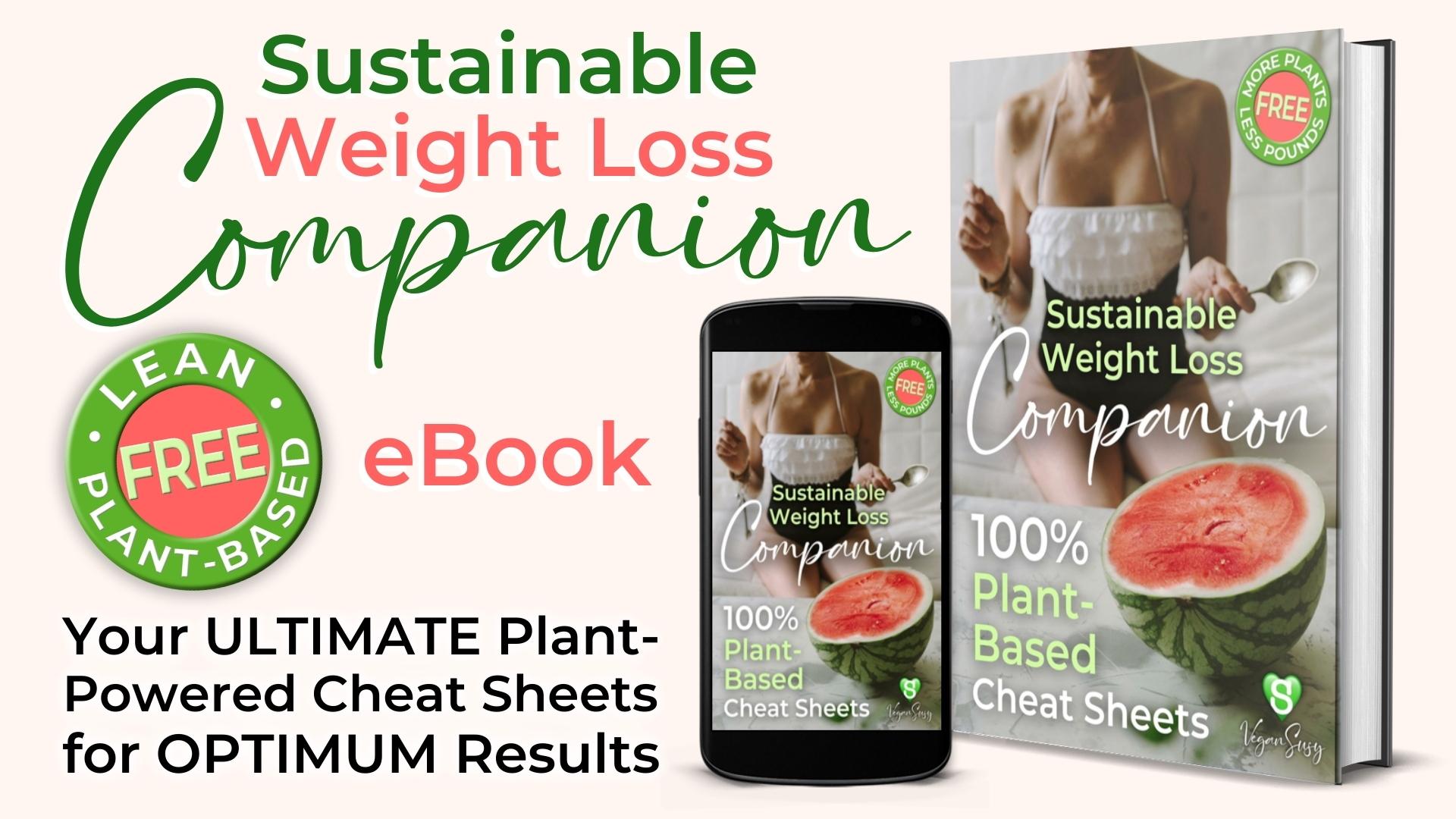

Understanding Alcohol Consumption on a Vegan Diet
Plant-Based Lifestyle Tips For Women
Author: Plant-Based Susy
At its core, alcohol itself is vegan-friendly, but not all alcoholic drinks are vegan-friendly — many companies use animal-derived products as fining agents. Understanding alcohol consumption on a plant-based diet takes a little research, but it’s worth it if you want to enjoy sipping a glass of wine or favourite cocktail with a clear conscience.
You can enjoy alcohol on a vegan or plant-based diet. The secret lies in finding alcohol options that are compatible with your vegan lifestyle and keeping moderation in mind. Avoid alcohol brands that use animal-based products in their production.
Whether you’re on a vegan diet for health reasons, moral reasons, or simply dabbling in dishes and booze of the plant-based variety, we have the ropes on consuming alcohol wisely and sustainably on a vegan diet.

Table of Contents:
Alcohol Consumption on a Plant-Based Diet
Ultimately, whether or not you choose to drink alcohol on a plant-based diet is a personal choice. As a vegan, you can consume alcohol. However, when choosing your favourite drink, opt for brands that clearly avoid using any animal products or by-products during processing.

Is Alcohol Vegan-Friendly?
You may wonder: Isn’t alcohol, after all, just made with plant-based products?
Although alcohol itself is wholly plant-based, not all are naturally vegan-friendly. Many companies use animal products in their filtering, flavouring, and colouring processes. So, you will need to be mindful of the brands you choose.
In general, most unflavoured spirits are vegan-friendly. They are distilled rather than undergoing filtration. However, we recommend checking the label or doing some research about the manufacturer to be 100% sure.
Not All Alcohol is Vegan-Friendly
You might not have been aware, but some alcohol contains animal products. Here’s why animal-based products may be lurking in your drink:
Animal-based Ingredients: Some alcoholic beverages contain animal-based ingredients like gelatine, egg whites, cream and casein protein to alter the flavour, texture, and aroma of the drink.
Production processes: Many alcoholic manufacturing companies also use animal-based products as fining agents to control fermentation, filter out impurities, and improve the clarity of the drink. These non-vegan ingredients include gelatine, egg whites, milk proteins, carmine, chitin, and fish bladders (isinglass).
Sweetening and flavour agents: Some alcohol brands use animal-based products like honey, eggs, milk, and cream as sweetening and flavouring agents.
Is Moderate Drinking Okay on a Plant-Based Diet?
You can enjoy moderate drinking on a plant-based or vegan diet.
Alcohol is both a poison and a tonic — the key differentiating factor is moderation. Small amounts of alcohol are linked to a list of potential benefits, while excessive drinking contributes to some hefty drawbacks.
Let’s take a look at the potential benefits of moderate drinking vs the drawbacks of heavy drinking while following a plant-based diet.
Potential Benefits of Moderate Drinking
Small amounts of alcohol raise your HDL (good) cholesterol. Moderate drinking seems to positively affect the heart and circulatory system.
As a moderate drinker, you may be less likely to get kidney stones.
Drinking moderate amounts of alcohol can reduce your risk of type 2 diabetes.
Potential Drawbacks of Heavy Drinking
Heavy drinking can cause liver damage.
Consuming large amounts of alcohol can increase your blood pressure and the risk of heart disease.
Heavy drinking is linked to several cancers.
Heavy drinking can harm an unborn child.
Consuming large amounts of alcohol increases the risk of depression.
Heavy drinking can contribute to violence.

How Much is “Moderate Drinking?”
Defining moderate drinking can be considered somewhat of a balancing act. There is no universal definition of how much moderate drinking really is. It’s hampered by the definition of what a “drink” is, the type of alcohol we drink (spirits, wine, or beer), and the time period between drinks.
Beer – 5% Alcohol
Wine – 12.5% Alcohol
Spirits – 40% Alcohol
In general, we would recommend limiting your alcohol consumption to 1 drink daily if you are a woman and 1 to 2 per day for men.
Spirits – Serving Suggestion: 42 ml (1.5 fl oz)
Wine – Serving Suggestion: 142 ml (5 fl oz)
Beer – Serving Suggestion: 340 ml (12 fl oz)
Remember, you should consider our recommendations as a “ceiling” to measure against, not a “floor.”
It’s important that alcohol should still offer health benefits and not risks.
Can Alcohol Consumption Interfere with a Vegan Diet?
Alcohol can interfere with your goals if you’re following a vegan diet for health-related reasons.
Many of us switch to a vegan lifestyle to manage our diabetes, heart health, and weight.
Consuming alcohol can interfere with your vegan diet by contributing to weight gain over time and increasing impulsive, binge eating. Long-term excessive drinking can elevate your risk of heart disease and blood sugar spikes.
Drinking a single serving can contain an average of 100 to 150 calories, and a couple of drinks can quickly add up to over 500 calories. When you drink alcoholic drinks mixed with syrups, juices, or tonics, your calorie intake is boosted even more.
Macronutrients vs alcohol compared by calories per gram:
Protein: 4
Carbohydrates: 4
Fats: 9
Alcohol: 7
The calories we consume from alcohol are described as ‘empty calories,’ as they have zero nutritional value. The alcohol also interrupts the way your body absorbs nutrients and processes fat.
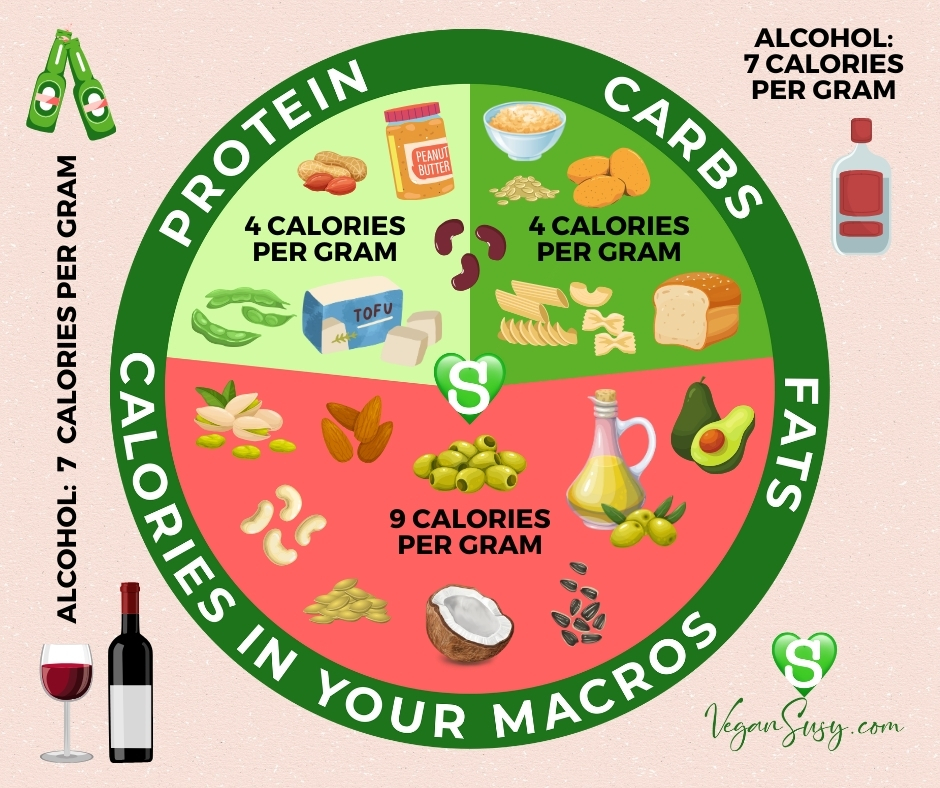
Does a Vegan Diet Affect Your Alcohol Tolerance?
A study from the Journal of Clinical Medicine claims that when we follow a vegan diet, we may experience worse hangovers compared to eating a meat-based diet — it might not be a coincidence that Veganuary and Dry January fall under the same month.
The findings show that vegans experience these hellish hangovers due to vitamin B3 and zinc nutrient deficiencies that affect the way our bodies metabolize alcohol.
However, Rohini Bajekal, a plant-based health professional, says otherwise. She argues that the study conducted by the Journal of Clinical Medicine does not state that any of the participants were vegan. Instead, they focused on the dietary intake of vitamin B3 and zinc. There simply isn’t enough scientific evidence to support this notion.
If you’re still a little nervous about drinking on a vegan diet, you can easily find vitamin B3 and zinc in plant-based foods like avocados, mushrooms, whole grains, nuts, and legumes.
As for the true culprit behind a nasty hangover, it is, well, alcohol. The best ways to avoid a hangover are to avoid alcohol altogether, to drink a glass of water between drinks, and to stick to moderate amounts of alcohol consumption.
Incorporating Alcohol on a Vegan Diet
Incorporating alcohol while following a vegan diet is relatively simple. Vegan Susy recommends these top three tips to ensure you and your conscience are guilt-free:
Limit drinking to 1 to 2 alcoholic beverages per day. The calories always count.
Lean towards alcoholic drinks with less sugar and syrups to keep the weight off for good.
Don’t fall victim to pairing your alcohol drink with unhealthy, processed foods. Instead, opt for a whole food plant-based (WFPB) lifestyle to keep you healthy for the long run.
Vegan Susy managed to lose 30 lbs in just 24 weeks, enjoying a small glass of red wine regularly throughout the weight loss process. Meanwhile she burned fat and maintained muscle by eating more plant-based proteins and calorie-light, nutrient-rich whole foods.
This led on to the creation of a her mantra and our ultimate sustainable weight loss programs, embracing a new holistic lifestyle for women: More Plants 🌱 Less Pounds.
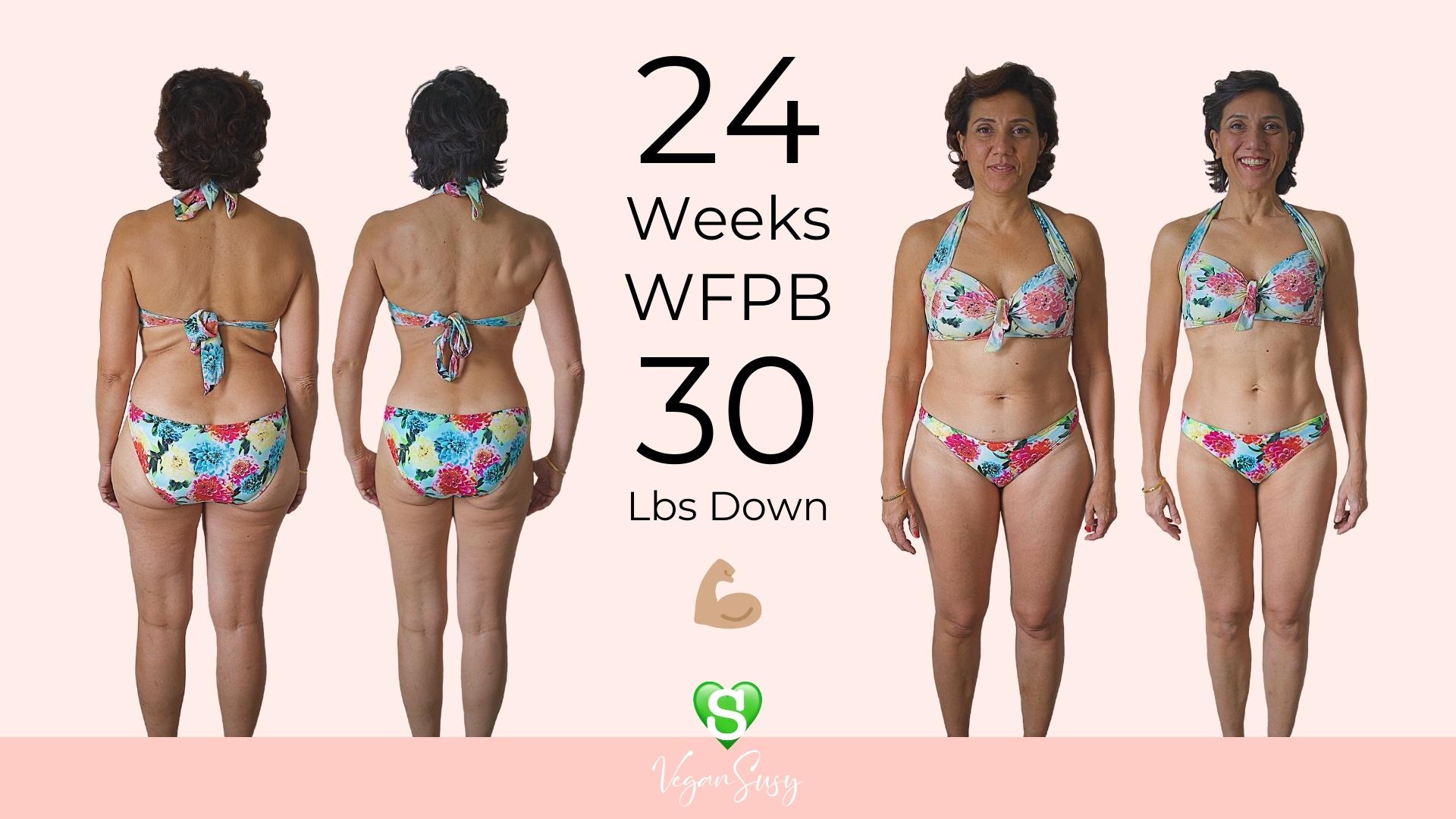
The Best Vegan Alcohol Brands
The vegan alcohol trend continues to boom and shows no signs of slowing down as more people are mindful of how their food and drinks are sourced. Vegan alcoholic brands are emerging with better quality, sourced, and branded plant-based products.
These vegan-friendly alternatives rely on plant-based products like activated charcoal, bentonite clay, silica gel, or pea protein to filter and clarify their alcohol instead of animal-based fining products.
Read on for Vegan Susy’s go-to list of the best vegan-friendly alcoholic brands when you’re in the mood for a Friday night tipple.
Top Vegan Wines
Pro-vegan winemakers use plant-based fining agents to fine their wine or skip the process altogether. Some of our communities' favourite vegan wines include:
Keep an eye out for vegan trademarks or texts on the label.
Top Vegan Beers
Modern vegan brewer manufacturers rely on natural clarification processes instead of accelerating them with animal-based products. Although cloudier, these vegan beers boast bolder flavours and an improved mouth feel.
Fortunately, most commercial beers are vegan-friendly. Some of our communities' favourite classics include:
Becks
Brew Dog
Budweiser and Bud Light
Corona
Coors
Guinness Original and Guinness Draught
Miller Genuine Drag
However, you’ll want to avoid cask ales, honey beers, milk stouts, and meads, as they usually aren’t vegan-friendly.
What about craft breweries?
Look out for a vegan trademark or text label on craft beers to ensure they follow vegan-friendly production processes.
Some vegan microbreweries that make refreshing cask ales include:
Moor Beer Co
Top Rope Brewing
Gun Brewery
Four Priests Brewery
Good Chemistry Brewing
Purity Brewing Co
Mumbles Brewery
Tom’s Tap and Brewhouse
We recommend asking craft brewers whether their products are vegan before consuming the beers. The fining agent ingredients aren’t always listed on the labels.
Top Vegan Ciders
If ciders are your tipple of choice on a warm summer’s day, there are great vegan choices that taste just as good. Here are some of our communities' favourite vegan ciders on the market:
Top Vegan Spirits
Spirits reply on distillation instead of filtration. So, unlike wine and beer, most unflavoured spirits are vegan. However, you’ll want to be more watchful of their flavoured counterparts. Flavoured liquors can contain non-vegan ingredients like honey, milk, cream, and eggs (and carmine in red spirits).
Vegan spirits include:
Vodka
Brandy
Whiskey
Gin
Tequila (not mezcal)
Rum

Top Vegan Cocktails
Cocktail become a little tricky when following a vegan diet, especially if your bartender likes adding a “special twist.”
Most creamy, coffee-based, or dessert cocktails are off-limits as they contain milk, cream, or ice cream. And the same applies to honey-flavoured cocktails or liquors. Some of these famous non-vegan cocktails include:
Baileys*
White Russian
Gold Rush
Eggnog
Whiskey Sour
Foamy cocktails (often contain egg whites)
*Baileys now has a vegan-friendly version with flavoured with almonds and vanilla.
Now, for the good part. Our communities' favour relying on the following classic cocktails for a tasty, vegan-friendly night out with the girls:
Margarita
Tequila Sunrise
Cosmopolitan
Class Daquiri
Mojito
Mai Tai
Gin Martini
Old Fashioned Cocktail
French 75
Manhattan
Lemon Drop
Bloody Mary (Beware: Most Worcester sauces contain anchovies)*
*For a 100% plant-based Bloody Mary try this 👉🏼 Biona Organic Vegan Worcester Sauce
If you’re a classic Negroni cocktail fan, you’re in luck! Although it used to contain carmine, Campari is now vegan.
Vegan Susy doesn't do alcoholic recipes per se, but for a lush mocktail or mixer try our Sugar-Free Super Refreshing Watermelon Lemonade.
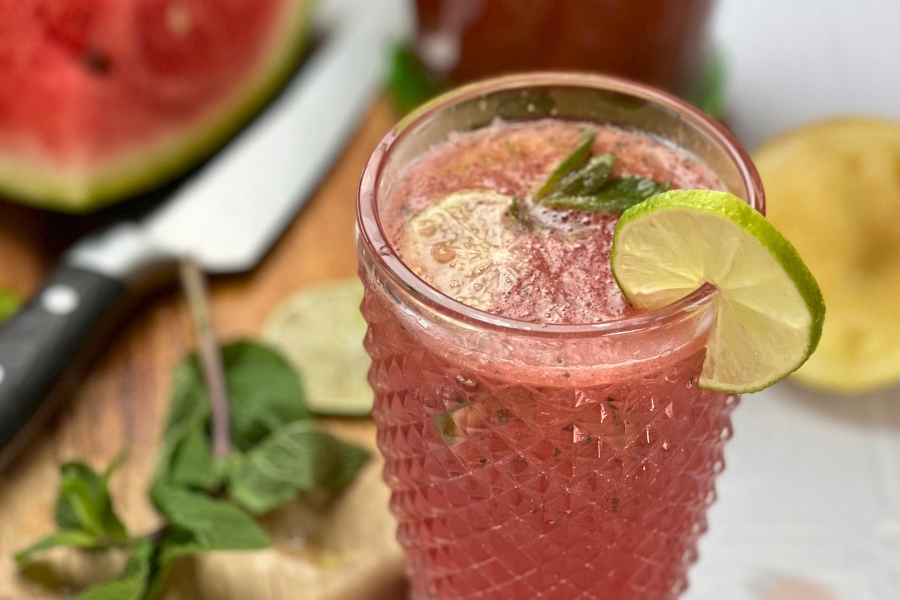
Tips for Choosing Alcohol on a Vegan Diet
While some alcohol manufacturers are helpful and list all of their ingredients voluntarily, it isn’t mandatory to do so for most alcoholic drinks. Due to these lax labelling requirements, many brands rarely list their fining agents (gelatine, isinglass, milk proteins) because they are removed after processing.
Here are our top tips at Vegan Susy for identifying vegan alcohol:
Vegan symbols: Some companies add vegan texts or symbols on the label to confirm their vegan status.
Carmine text/symbol: Keep an eye out for text phrases like “contains carmine” or “cochineal extract” on the label, especially in red-tinted alcoholic beverages.
Allergens: Milk, eggs, shellfish, and fish are common allergens and are commonly used in alcoholic drinks. Some companies will list major allergens on their labels. However, it isn’t mandatory.
Ask the manufacturer: Ask the manufacturer if their beverages are vegan-friendly. You can scan their website for contact information.
Barnivore: Barnivore is a very useful vegan alcohol directory. The site includes over 58,000 entries on the vegan status of alcoholic beverages.
Frequently Asked Questions
Can vegans drink alcohol?
Vegans can drink alcohol as many alcohols are plant-based. However, you need to avoid alcoholic beverage companies that use animal-derived products during processing or to add flavour.
How much is moderate drinking?
Moderate drinking recommends limiting your alcohol consumption to 1 drink per day for the ladies and 1 to 2 drinks daily for the gents. A single serving is approximately 1.5 ounces of spirits, 5 ounces of wine, or 12 ounces of beer.
Can you drink alcohol on a whole-food vegan diet?
It's up to you. Alcohol is not considered a staple ingredient in a whole food plant-based diet. It is not a whole food. A whole food vegan diet excludes most refined and processed foods and alcoholic drinks most of the time, along with excluding all animal products and animal-based ingredients.
Are there vegan alternatives to Baileys and creamy liqueurs?
Yes! Baileys Almande and other dairy-free cream liqueurs use almond or oat milk instead of dairy.
Which alcoholic drinks are always vegan?
Most unflavored spirits like vodka, whiskey, gin, and tequila are naturally vegan-friendly.
Conclusion:
Drinking alcohol on a vegan diet is a personal choice. You can enjoy alcohol on a vegan diet as long as you are mindful of the brands you choose. There’s a myriad of tasty, vegan-friendly alcoholic drinks that align with your values and lifestyle.
Remember to incorporate these alcoholic drinks in moderation to ensure you maintain a healthy lifestyle.
When the goal is to lose weight, limit your alcohol intake to one bottle of red wine per week.
You're Welcome. But make it last: Serve it in small glass measures, and enjoy it with healthy plant-based whole food throughout the course of the week. Bon Appétit.
Cheers. Good Health.

💚 "Happy Plant-Based Eating & Exercising!" 💚

Plant-Based Susy
Plant-Based Nutrition Professional & Weight Loss Coach
Empower Yourself: Embark on a Delicious Fat Loss Adventure

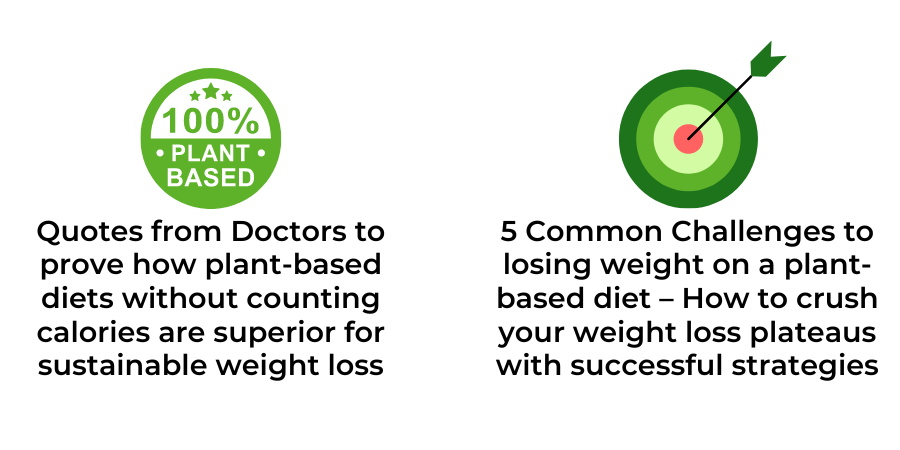
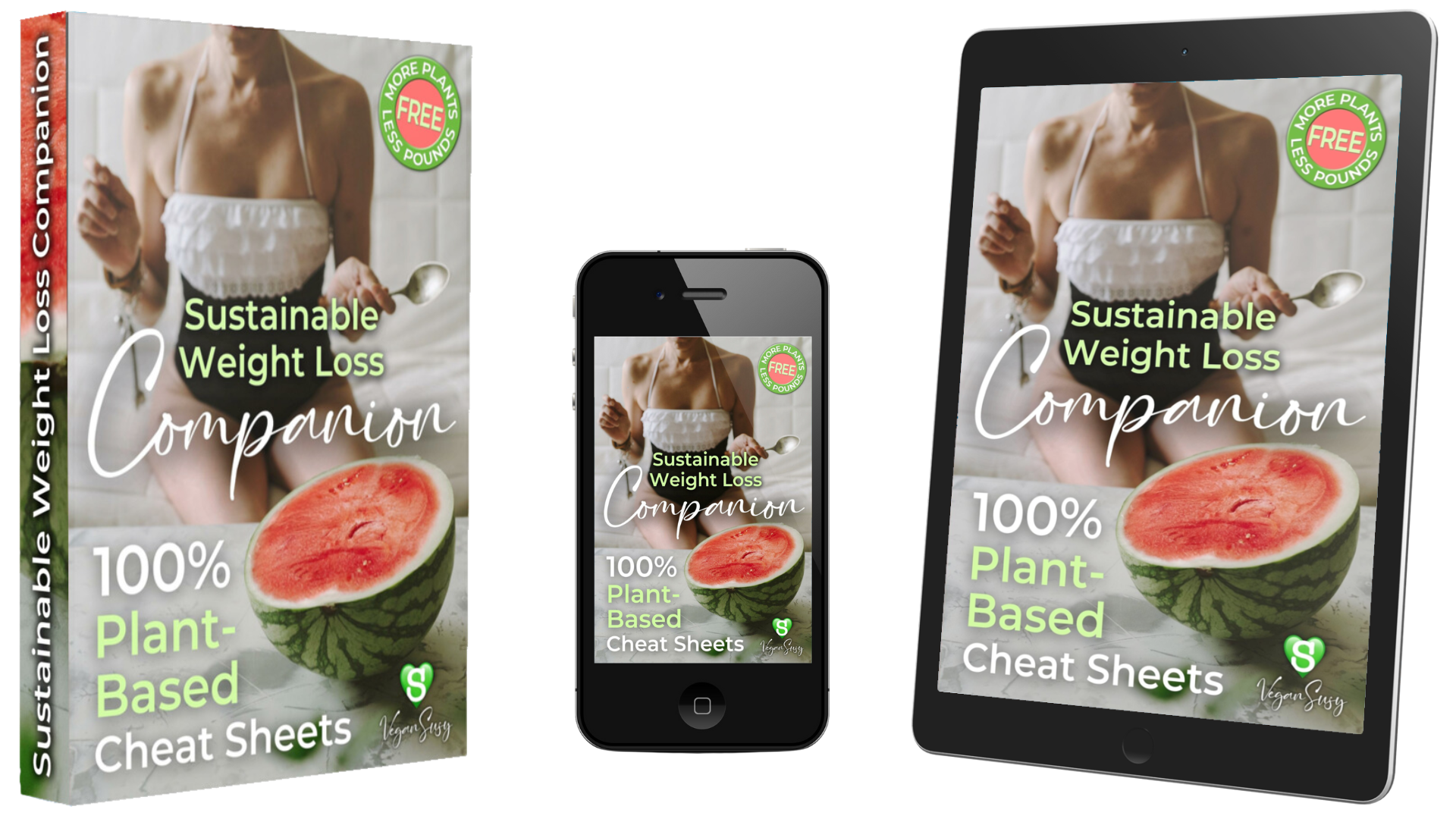
🍉 Get Ready to Jump Start Your Fitness Goals AND DISCOVER A HEALTHIER YOU!
🍉 Let's Make Your Fat Loss & Optimum Health Journey a Delicious Success Story!
🍉 Get The FREE Sustainable Weight Loss Companion eBook and CHEAT SHEETS!
More Free Resources
Unlock Your Transformation Today!
© 2025 VeganSusy Ltd. All Rights Reserved


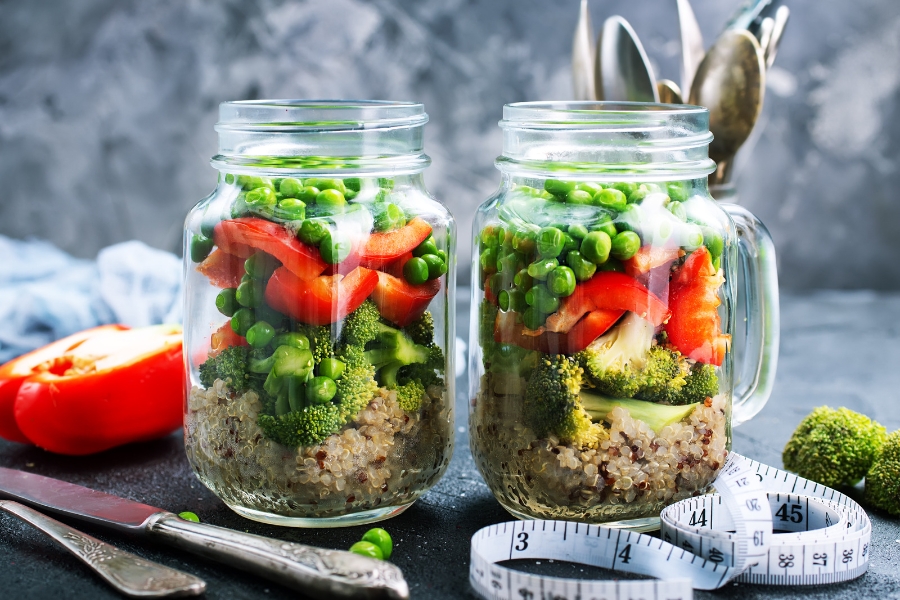
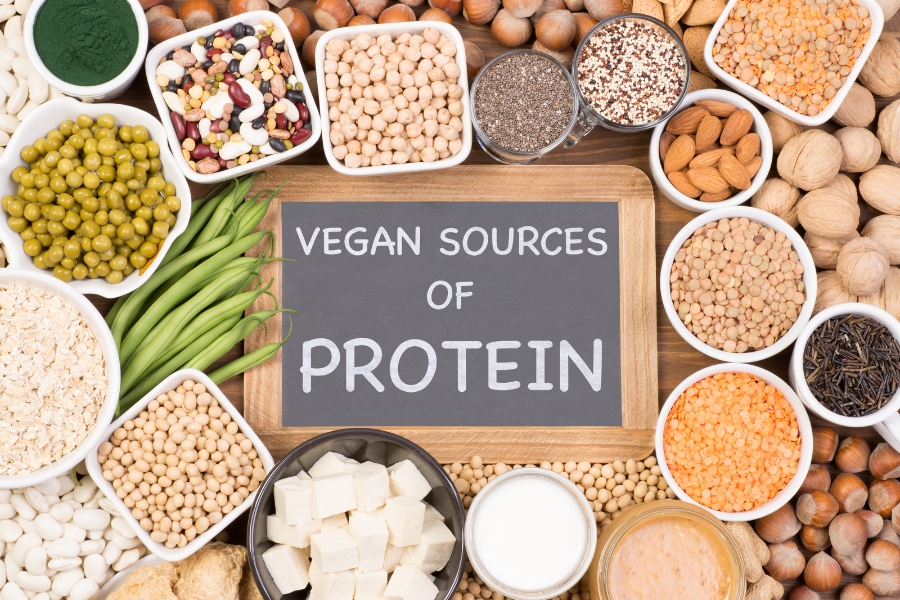

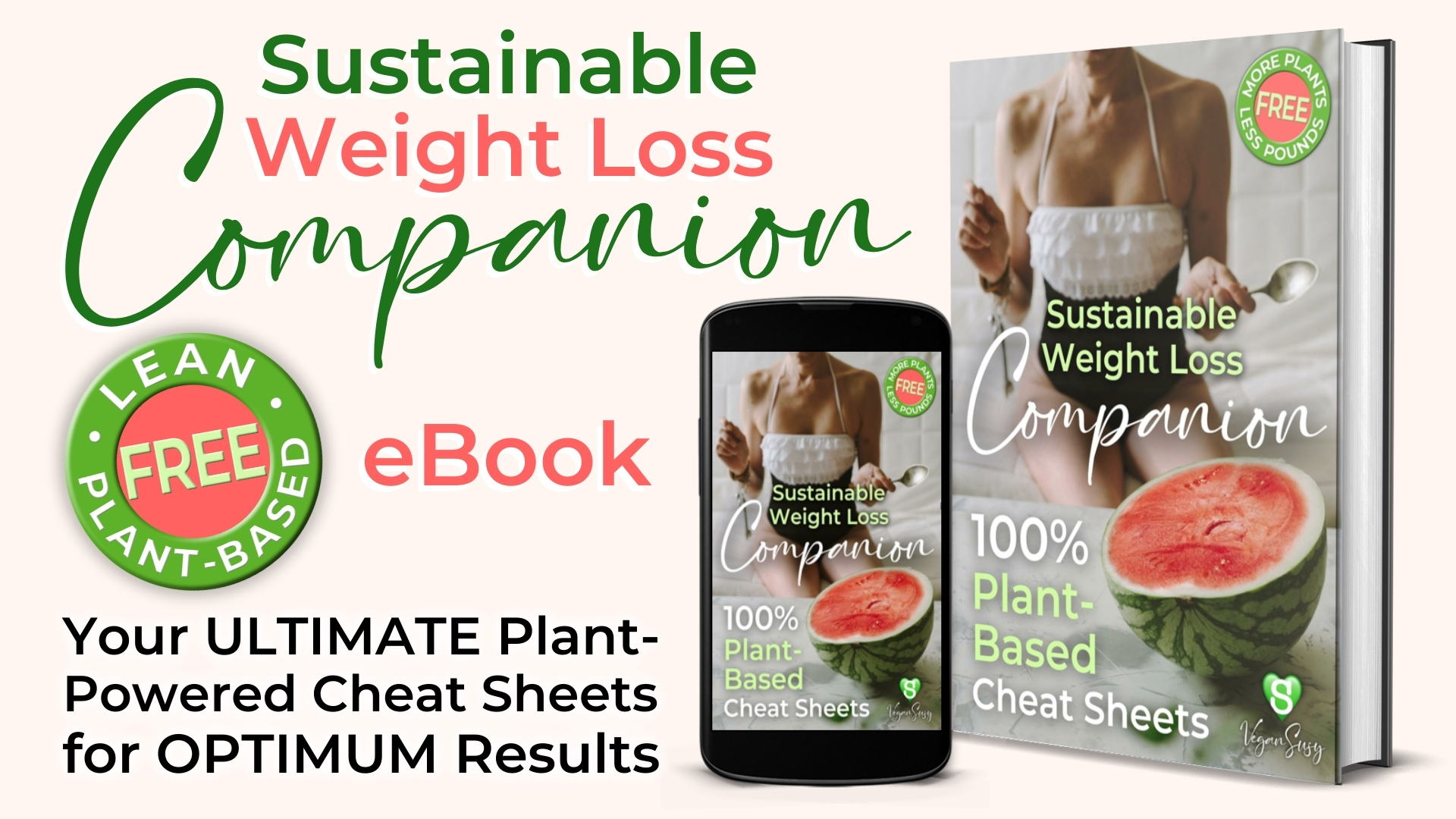





Facebook
Instagram
Youtube
Pinterest